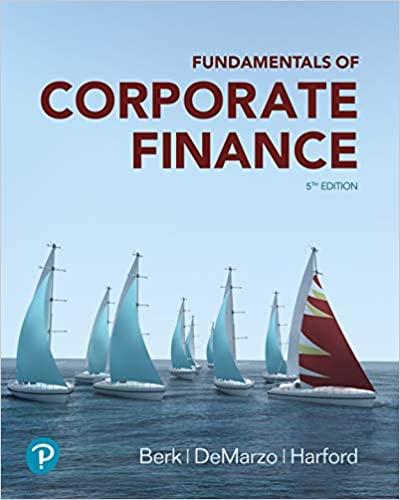

Analyzing an Inventory Footnote Disclosure General Electric Company reports the following footnote in its 10-K report. December 31 (in millions) 2009 2008 Raw materials and work in process $7,581 $ 8,710 Finished goods 4,105 5,032 Unbilled shipments 561 12,445 14,303 Less revaluation to LIFO (529) (706) $ 11,916 $13,597 759 The company reports its inventories using the LIFO inventory costing method. (a) What is the balance in inventories reported on GE's 2009 balance sheet? (million) $ (b) What would GE's 2009 balance sheet have reported for inventories had the company used FIFO inventory costing? (million) $ (C) What cumulative effect has GE's choice of LIFO over FIFO had on its pretax income as of year end 2009? OThe cumulative effect is that pretax income has not changed. LIFO and FIFO are simply two different ways to account for inventories. Both methods lead to the same pretax income. The cumulative effect on pretax income is nonexistent. The LIFO and FIFO methods of inventory accounting cause only cash flow effects, and they do not affect pretax income. The cumulative effect is that pretax income has decreased. LIFO matches more "current" inventory costs against current selling prices, thus avoiding the recognition of holding gains. OThe cumulative effect is that pretax income has increased. FIFO matches more "current" inventory costs against current selling prices, thus avoiding the recognition of holding gains. (d) Assume GE has a 35% income tax rate. As of the 2009 year-end, how much has GE saved in taxes by choosing LIFO over FIFO method for costing inventory? (Round your answer to the nearest whole number.) $ (million) (e) What effect has the use of LIFO inventory costing had on GE's pretax income and tax expense for 2009 only (assume a 35% income tax rate)? (Round answers to the nearest whole number.) 2009 pretax income: by $ million. 2009 tax expense: by $ million Analyzing an Inventory Footnote Disclosure General Electric Company reports the following footnote in its 10-K report. December 31 (in millions) 2009 2008 Raw materials and work in process $7,581 $ 8,710 Finished goods 4,105 5,032 Unbilled shipments 561 12,445 14,303 Less revaluation to LIFO (529) (706) $ 11,916 $13,597 759 The company reports its inventories using the LIFO inventory costing method. (a) What is the balance in inventories reported on GE's 2009 balance sheet? (million) $ (b) What would GE's 2009 balance sheet have reported for inventories had the company used FIFO inventory costing? (million) $ (C) What cumulative effect has GE's choice of LIFO over FIFO had on its pretax income as of year end 2009? OThe cumulative effect is that pretax income has not changed. LIFO and FIFO are simply two different ways to account for inventories. Both methods lead to the same pretax income. The cumulative effect on pretax income is nonexistent. The LIFO and FIFO methods of inventory accounting cause only cash flow effects, and they do not affect pretax income. The cumulative effect is that pretax income has decreased. LIFO matches more "current" inventory costs against current selling prices, thus avoiding the recognition of holding gains. OThe cumulative effect is that pretax income has increased. FIFO matches more "current" inventory costs against current selling prices, thus avoiding the recognition of holding gains. (d) Assume GE has a 35% income tax rate. As of the 2009 year-end, how much has GE saved in taxes by choosing LIFO over FIFO method for costing inventory? (Round your answer to the nearest whole number.) $ (million) (e) What effect has the use of LIFO inventory costing had on GE's pretax income and tax expense for 2009 only (assume a 35% income tax rate)? (Round answers to the nearest whole number.) 2009 pretax income: by $ million. 2009 tax expense: by $ million








